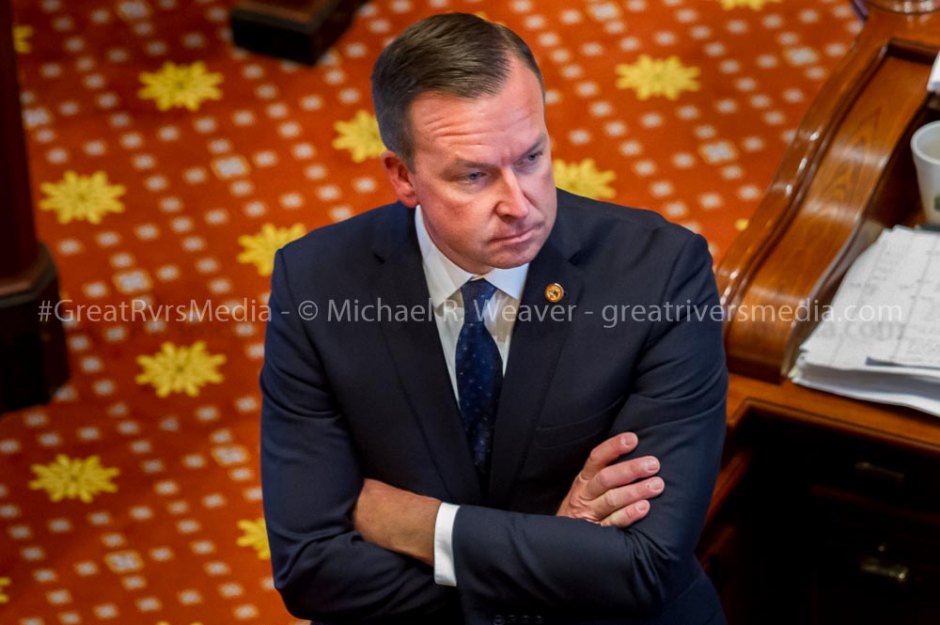Your Ad Could Be Here - For As Little As $25 Weekly! - Call 618-494-2068
State Senator Andy Manar and Others Satisfied With School Funding Bill
SPRINGFIELD – Andy Manar, a Bunker Hill Democrat who long crusaded and sponsored for the legislation to change the state's school finance system couldn't be happier with the outcome of the Senate vote in favor of Senate Bill 1947 this week.
An unprecedented overhaul of how Illinois funds public schools is on its way to the governor’s desk and should result in additional funding for many of the schools in the 48th Senate District and beyond.
“Students, parents, teachers and taxpayers deserve better than what Illinois has been offering. Finally, we have a plan that lays the groundwork for local schools to be fairly funded by the state,” said Senator Manar.
Gov. Bruce Rauner today signed the bill and now schools will be funded through an evidence-based model that prioritizes funding for schools that are the farthest away from adequacy. The model ensures no schools lose money, eliminates the current system of winning and losing school districts, and offers financial certainty to school districts annually when they embark on crafting their budgets for the upcoming school year.
Although the plan is a big win for area schools, Manar said he was disappointed that Republicans insisted that a private school tax credit program be included before they would vote for it and before Gov. Rauner would sign it. Republicans inserted a tax credit for people who donate to scholarship programs at private schools that benefit low-income students.
Once that provision was included, Rauner and the Republicans ended their opposition to the comprehensive education overhaul package.
What’s in Senate Bill 1947?
The basis for Senate Bill 1947, which passed in the Senate on Tuesday, is Senate Bill 1. The measure as passed establishes an evidence-based formula to replace Illinois’ current unfair and archaic system of funding public schools. Under SB1947:
- No school districts would lose funding. No more winning and losing school districts.
- Funding would be distributed on a per-district basis, not a per-pupil basis.
- $350 million in new K-12 state funding for this schoolyear would be distributed to districts using a tier system that prioritizes districts farthest from adequacy.
- Initial funding would be based on FY17 disbursement levels. It would increase from that point year over year as school districts get closer to reaching their adequacy targets.
- School districts and their boards will have certainty each year about how much state funding they can expect to receive, which will make budgeting easier and more effective.
- Achieves pension parity for school districts across the state.
- The Chicago Public Schools block grant would be repealed, but CPS would be held harmless like every other school district so that it would not lose funding as a result of the change.
- Establishes a tax credit scholarship program sought by Republicans, which would award a 75-percent tax credit of up to $1 million to any taxpayer who contributes scholarship funding for students to attend private or parochial schools. The amount of credits awarded in a year may not exceed $75 million. This is a five-year pilot program.
- Offers mandate relief to schools by address driver’s education and physical education concerns. First, it allows districts to contract with commercial driver training schools without seeking a waiver from the State Board of Education. Second, it allows them to offer physical education three days a week instead of daily and allows students in grades 7-12 who participate in athletics to be excused from PE. In addition, the bill streamlines the mandate waiver process for school districts.
- Beginning in FY19, money will be appropriated for property tax relief grants to high-rate, low-wealth school districts. It also allows districts with well-funded schools to reduce property taxes via referendum if 10 percent or more voters in a district sign a petition to place the question on the ballot.
- Senate Bill 1947 does not include any changes to tax increment finance districts, as Gov. Rauner had urged in his amendatory veto of Senate Bill 1. Instead, a bipartisan commission consisting of three members from each legislative caucus will be established to study and report on the issue.


